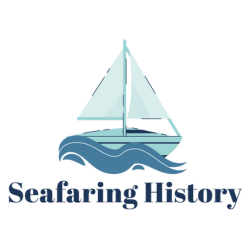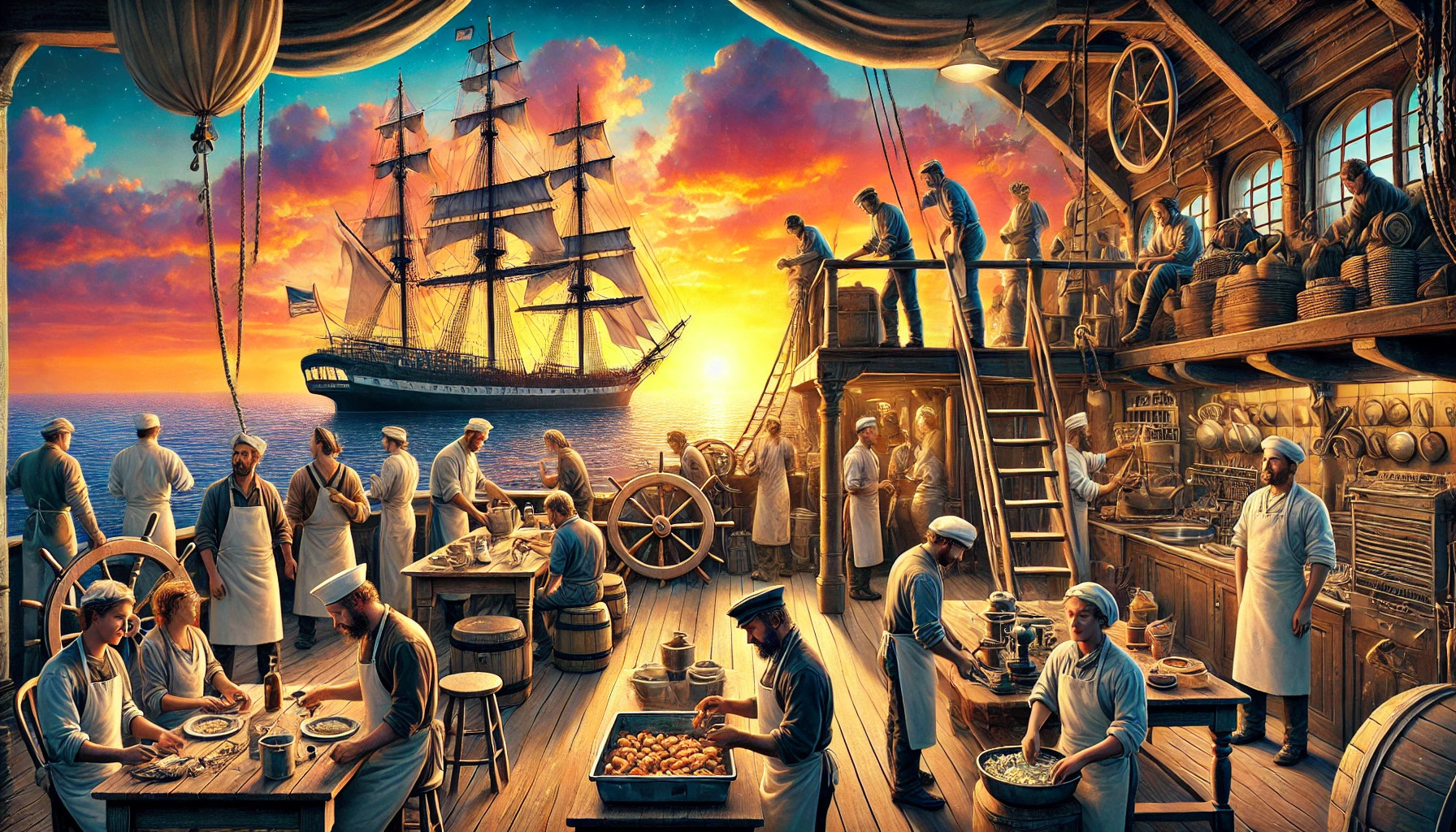The sea is home to countless individuals whose hard work and dedication ensure that global shipping runs smoothly. From skilled sailors to essential maritime security personnel, these unsung heroes deserve recognition for their contributions.
Sailors form the backbone of every vessel, carrying out critical tasks that keep operations flowing seamlessly. Without their expertise and commitment, the maritime world would encounter significant challenges. In addition, roles like ship pilots and sea marshals play key parts in ensuring safe navigation and security on the open waters.
Highlighting these vital functions sheds light on the immense teamwork required in maritime operations. Recognizing these roles not only honors the individuals involved but also emphasizes their importance in maintaining safety and stability at sea. The contributions of these heroes are foundational to the shipping industry and global trade as a whole.
Sailing the Seas: Varied Maritime Roles
The maritime world is filled with diverse roles that keep ships running smoothly. These positions are essential for safe navigation, efficient operation, and effective communication during voyages.
Navigating Officers: The Pathfinders
Navigating officers play a crucial role in maritime travel. They are responsible for charting the ship’s course and ensuring safe passage through often challenging waters. Their work involves using advanced technology and traditional navigation methods.
These officers must stay alert to weather changes, currents, and potential hazards. They also use nautical charts and maps for accurate navigation. In emergencies, they make quick decisions to protect the crew and vessel.
Training and certification are essential for navigating officers. They often have degrees in marine navigation or related fields. Their expertise is vital to keeping ships on course.
Engine Room Crew: The Power Behind the Voyage
The engine room crew ensures that the ship’s machinery runs efficiently. This crew keeps the engines operating and manages fuel and power systems. They monitor various gauges and systems to prevent mechanical failures.
People in these roles have specialized training in engineering. They work long hours and often face challenging conditions in the engine room. Maintaining a reliable power supply is essential for the ship’s operations.
Regular inspections and maintenance tasks are part of their routine. A well-functioning engine room keeps the ship moving smoothly across the water. The dedication of the engine room crew is key to maritime success.
Radio Operators: The Lifeline Communicators
Radio operators are the vital link between the ship and the outside world. They manage all communications, from routine messages to emergency signals. This role ensures that ships can call for help when needed.
They use advanced communication equipment to stay in contact with shore and other vessels. Radio operators must understand international communication protocols to ensure messages are clear and accurate.
In emergencies, their quick response can save lives. They also keep track of weather updates and navigational warnings. Their skills help ensure safe travel across vast oceans.
On Deck and Below: Vital Support Roles
The maritime industry relies heavily on various support roles that keep everything running smoothly. These positions are essential for ensuring crew safety, satisfaction, and effective ship operations.
Deckhands: The Backbone of Ship Operations
Deckhands play a critical role on any vessel. They assist in everyday tasks like steering, cargo handling, and maintenance. Their duties include tying up the ship, washing down decks, and handling gear.
This position requires teamwork and physical strength. Deckhands must be alert to their surroundings and ready to respond to any situation. They often undergo rigorous training to ensure they can operate safely in all conditions.
With responsibilities varying from navigation support to equipment care, deckhands truly serve as the backbone of ship operations. Their hard work ensures that everything is in order, helping the ship operate efficiently.
Stewards and Cooks: Keeping Crews Fed and Fit
Stewards and cooks provide essential services that keep the crew healthy and happy. Stewards manage accommodations, ensuring that living quarters are clean and comfortable. They also handle laundry and general maintenance of the crew’s living areas.
Cooks prepare meals and ensure that everyone receives proper nutrition. They often make menus, considering dietary restrictions and preferences. A nutritious meal can keep morale high, especially on longer voyages.
Together, these roles create a supportive environment. A satisfied crew is vital for smooth sailing, and these support roles help achieve that. Their attention to detail contributes significantly to the overall well-being of the crew.
Safety First: The Guardians of the Sea
Maritime safety is essential in protecting lives at sea. Various roles contribute to this mission, ensuring that operations are secure and that everyone is prepared for emergencies. Two critical roles in this effort are Maritime Safety Officers and Lifeboat Drill Instructors.
Maritime Safety Officers: The Precaution Experts
Maritime Safety Officers play a key role in ensuring safety on ships. They are responsible for assessing risks and enforcing safety protocols. Their work includes conducting inspections to identify hazards, analyzing safety reports, and developing strategies to mitigate risks.
They often provide training and resources for crew members. Regular safety drills help everyone understand their roles during emergencies. Maritime Safety Officers also stay updated on regulations and best practices. This ongoing education enhances overall safety onboard, preventing accidents and saving lives.
Lifeboat Drill Instructors: Ensuring Evacuation Readiness
Lifeboat Drill Instructors focus specifically on evacuation procedures. They provide training on how to operate lifeboats and other emergency equipment. This preparation is vital, as knowing what to do in a crisis can dramatically increase survival chances.
These instructors facilitate regular drills that simulate emergency scenarios. During these drills, crew members learn to respond quickly and efficiently. Instructors emphasize teamwork and communication, which are crucial in real emergencies. By ensuring everyone knows their responsibilities, they create a safer environment at sea.
Logistics and Handling: Keeping Goods on the Move
Efficient logistics and handling are crucial for ensuring that goods reach their destinations smoothly. Key roles such as cargo handlers and supply chain coordinators play a significant part in this process, managing everything from loading to the flow of resources.
Cargo Handlers: Loading and Unloading Experts
Cargo handlers are the backbone of maritime logistics. They are responsible for safely loading and unloading goods from ships, ensuring that everything is handled with care.
These experts work in various environments, including docks and warehouses. They use equipment like forklifts and cranes to move heavy items. Precision is essential, as improper handling can lead to accidents or damage.
Cargo handlers also play an important role in organizing cargo. They ensure that containers are properly stacked and secured for transport. This helps prevent shifting during voyages, reducing the risk of loss or damage and making the whole process smoother.
Supply Chain Coordinators: The Flow Managers
Supply chain coordinators work behind the scenes to keep goods moving seamlessly. They monitor the entire logistics process, coordinating between transporters, warehouses, and shipping companies.
Their job includes tracking shipments, checking inventory levels, and solving any issues that arise. They need strong communication skills to connect various parties and ensure everyone is on the same page.
By managing the flow of goods, supply chain coordinators help prevent delays. Their efforts contribute to a more efficient supply chain, which is vital for the success of maritime operations.
Environmental Protection: The Ocean’s Caretakers
The oceans face many threats, including pollution and oil spills. There are dedicated teams working to protect marine life and the ecosystems supporting it. These roles are crucial for ensuring a healthier ocean environment.
Oil Spill Response Teams: The Quick Reactors
Oil spill response teams are vital when disaster strikes. They are trained professionals who act swiftly to contain and clean up spills. Time is critical, as every minute matters for marine life and coastal habitats.
These teams use various tools and techniques, such as booms to contain oil and skimmers to remove it from the water. They also assess the damage and collaborate with other agencies to restore affected areas.
After a spill, they monitor the recovery of the ecosystem. Their quick actions help minimize harm to marine species, protecting everything from fish to birds that rely on clean waters.
Waste Management Specialists: The Sustainability Enforcers
Waste management specialists play a key role in keeping oceans clean. They work to ensure that waste disposal complies with environmental regulations. Reducing plastic waste is especially important, as millions of tons enter the oceans each year.
These specialists educate communities about proper waste disposal and recycling practices. They also oversee local cleanup efforts, making sure that litter doesn’t end up in waterways. Their work includes monitoring waste collection and handling hazardous materials safely.
In coastal areas, their efforts help maintain healthy ecosystems. By preventing waste from entering the sea, they support the diverse life that depends on ocean health.
The Science at Sea: Research and Observations
Marine research plays a crucial role in understanding the world’s oceans. Various scientists study different aspects that contribute to ocean health and safety. Two key fields are oceanography and meteorology, which help unravel the mysteries of marine environments.
Oceanographers: The Marine Explorers
Oceanographers are the explorers of the seas. They study ocean currents, marine life, and the chemical makeup of seawater. Using advanced tools like submersibles and buoys, they gather data at various depths.
Their research helps track environmental changes and informs conservation efforts. For instance, understanding coral reef ecosystems is vital as they face threats from climate change. Oceanographers also contribute to mapping the ocean floor, revealing underwater landscapes.
Meteorologists: The Weather Predictors
Meteorologists focus on weather patterns over the oceans. They analyze data to predict storms and sea conditions. Using satellites and weather buoys, they track temperature changes, wave heights, and wind speeds.
This information is essential for shipping and fishing industries, allowing them to make informed decisions. Accurate weather predictions also enhance maritime safety, protecting crews and vessels from severe weather. Meteorologists share their findings with the public, promoting awareness about ocean-related weather events.
Maritime Education and Training: Shaping Future Mariners
Maritime education and training play a vital role in the development of skilled professionals in the industry. With a focus on both practical and theoretical knowledge, these programs prepare future mariners for the challenges they will face at sea.
Instructors and Simulators: The Skills Sharpeners
Effective instructors are key to successful maritime training. They bring real-world experience and insights, helping students grasp complex concepts. These educators often use classrooms and simulators to teach navigational skills, safety procedures, and emergency response techniques.
Simulators provide a safe environment for hands-on practice. Students can operate realistic ship models, enhancing their decision-making skills under pressure. Modern technology allows for virtual scenarios, such as storms or equipment failures. This blend of teaching methods ensures that future mariners are not only knowledgeable but also proficient in essential skills necessary for their roles at sea.
Legal and Regulation Compliance: Ensuring Maritime Integrity
In the maritime industry, legal and regulatory compliance is vital for maintaining safety and environmental standards. Key roles in this field include various inspectors and regulatory bodies that ensure the maritime sector operates within established laws and guidelines.
Port State Control Inspectors: Upholding Standards
Port State Control Inspectors play a crucial role in maritime regulation. They conduct inspections of foreign vessels in national ports to ensure compliance with international safety and environmental standards. These inspectors check for issues like properly functioning life-saving equipment and pollution prevention measures.
Their work helps protect the marine ecosystem and ensures ships operate safely. When inspectors find violations, they can impose penalties or even detain ships until compliance is met. This commitment to upholding standards contributes significantly to the safety and integrity of maritime operations worldwide.

